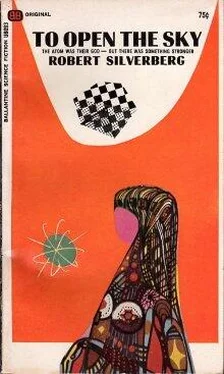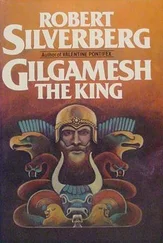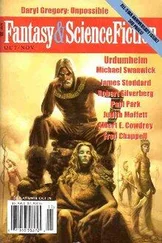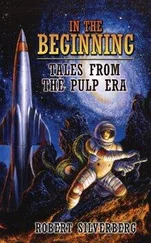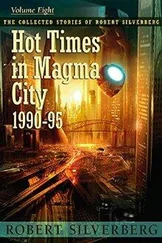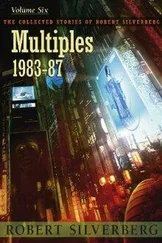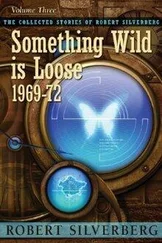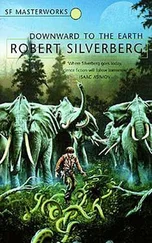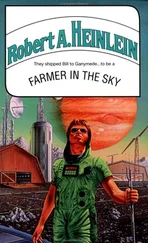Robert Silverberg - To Open the Sky
Здесь есть возможность читать онлайн «Robert Silverberg - To Open the Sky» весь текст электронной книги совершенно бесплатно (целиком полную версию без сокращений). В некоторых случаях можно слушать аудио, скачать через торрент в формате fb2 и присутствует краткое содержание. Год выпуска: 1967, Издательство: Ballantine Books, Жанр: Фантастика и фэнтези, на английском языке. Описание произведения, (предисловие) а так же отзывы посетителей доступны на портале библиотеки ЛибКат.
- Название:To Open the Sky
- Автор:
- Издательство:Ballantine Books
- Жанр:
- Год:1967
- ISBN:нет данных
- Рейтинг книги:5 / 5. Голосов: 1
-
Избранное:Добавить в избранное
- Отзывы:
-
Ваша оценка:
- 100
- 1
- 2
- 3
- 4
- 5
To Open the Sky: краткое содержание, описание и аннотация
Предлагаем к чтению аннотацию, описание, краткое содержание или предисловие (зависит от того, что написал сам автор книги «To Open the Sky»). Если вы не нашли необходимую информацию о книге — напишите в комментариях, мы постараемся отыскать её.
To Open the Sky — читать онлайн бесплатно полную книгу (весь текст) целиком
Ниже представлен текст книги, разбитый по страницам. Система сохранения места последней прочитанной страницы, позволяет с удобством читать онлайн бесплатно книгу «To Open the Sky», без необходимости каждый раз заново искать на чём Вы остановились. Поставьте закладку, и сможете в любой момент перейти на страницу, на которой закончили чтение.
Интервал:
Закладка:
The acolyte pretended to study the newsfax ticker. He did not feel enthusiastic about his present predicament, but he sensed that it would be useless and possibly harmful to resist. When the thirty seconds were up. he moved toward the washroom. The scanner decided that he was suitably male, and the ADMIT sign flashed. Mondschein entered.
“Third booth,” the voice murmured.
The blond man was not in sight. Mondschein entered the booth and found the package from the locker propped against the seat. On an order, he picked it up and opened the clasps. The wrapper fell away. Mondschein found himself holding the green robe of a Harmonist Brother.
The heretics? What in the world—“Put it on, Mondschein.”
“I can’t. If I’m seen in it—”
“You won’t be. Put it on. We’ll guard your own robe until you get back.”
He felt like a puppet. He shrugged out of his robe, put it on a hook, and donned the unfamiliar uniform, it fitted well. There was something clipped to the inner surface: a thermoplastic mask, Mondschein realized. He was grateful for that. Unfolding it, he pressed it to his face and held it there until it took hold. The mask would disguise his features just enough so that he need not fear recognition.
Carefully Mondschein put his own robe within the wrapper and sealed it.
“Leave it on the seat,” he was told.
“I don’t dare. If it’s lost, how will I ever explain?”
“It will not be lost, Mondschein. Hurry now. The quickboat’s about to leave.”
Unhappily, Mondschein stepped from the booth. He viewed himself in the mirror. His face, normally plump, now looked gross: bulging cheeks, stubbly jowls, moist and thickened lips. Unnatural dark circles rimmed his eyes as though he had caroused for a week. The green robe was strange, too. Wearing the ouffit of heresy made him feel closer to his own organization than ever before.
The slim woman came forward as he emerged into the waiting room. Her cheekbones were like hatchet blades, and her eyelids had been surgically replaced by shutters of fine platinum foil. It was an outmoded fashion of the previous generation; Mondschein could remember his mother coming from the cosmetic surgeon’s office with her face transformed into a grotesque mask. No one did that any more. This woman had to be at least forty, Mondschein thought, though she looked much younger.
“Eternal harmony, Brother,” she said huskily.
Mondschein fumbled for the proper Harmonist response. Improvising, he said, “May the Oneness smile upon you.”
“I’m grateful for your blessing. Your ticket’s in order, Brother. Will you come with me?”
She was his guide, he realized. He had shed the Ear with his own robe. Queasily, he hoped he would get to see that garment again before long. He followed the slim woman to the loading platform. They might be taking him anywhere—Chicago, Honolulu, Montreal—
The quickboat sparkled in the floodlit station, graceful, elegant, its skin a burnished bluish-green. As they filed aboard, Mondschein asked the woman, “Where are we going?”
“Rome,” she said.
three
Mondschein’s eyes were wide as the monuments of antiquity flashed by. The Forum, the Colosseum, the Theater of Marcellus, the gaudy Victor Emmanuel Monument, the Mussolini Column—their route took them through the heart of the ancient city. He saw also the blue glow of a Vorster chapel as he whizzed down the Via dei Fori Imperiali, and that struck him as harshly incongruous here in this city of an older religion. The Brotherhood had a solid foothold here, though. When Gregory XVIII appeared in the window at his Vatican palace, he could still draw a crowd of hundreds of thousands of cheering Romans, but many of those same Romans would melt from the square after viewing the Pope and head for the nearest chapel of the Brotherhood.
Evidently the Harmonists were making headway here, too, Mondschein thought. But he kept his peace as the car sped north-ward out of the city.
“This is the Via Flaminia,” his guide announced. “The old route was followed when the electronic roadbed was installed. They have a deep sense of tradition here.”
“I’m sure they do,” said Mondschein wearily. It Was mid-evening by his time, and he had had nothing to eat but a snack aboard the quickboat. The ninety-minute journey had dumped him in Rome in the hours before dawn. A wintry mist hung over the city; spring was late. Mondschein’s face itched fiercely beneath his mask. Fear chilled his fingers.
They halted in front of a drab brick building some where a few dozen miles north of Rome. Mondschein shivered as he hurried within. The woman with platinum eyelids led him up the stairs and into a warm, brightly lit room occupied by three men in green Harmonist robes. That confirmed it, Mondschein thought: I’m in a den of heretics.
They did not offer their names. One was short and squat, with a sallow face and bulbous nose. One was tall and spectrally thin, arms and legs like spider’s limbs. The third was unremarkable, with pale skin and narrow, bland eyes. The squat one was the oldest and seemed to be in charge.
Without preamble he said, “So they turned you down, did they?”
“How—”
“Never mind how. We’ve been watching you, Mondschein. We hoped you’d make it. We want a man in Santa Fe just as much as you want to be there.”
“Are you Harmonists?”
“Yes. What about some wine, Mondschein?”
The acolyte shrugged. The tall heretic gestured, and the slim woman, who had not left the room, came forward with a flask of golden wine. Mondschein accepted a glass, thinking dourly that it was almost certainly drugged. The wine was chilled and faintly sweet, like a middling-dry Graves. The others took wine with him.
“What do you want from me?” Mondschein asked.
“Your help,” said the squat one. “There’s a war going on, and we want you to join our side.”
“I don’t know of any wars.”
“A war between darkness and light,” said the tall heretic in a mild voice. “We are the warriors of light. Don’t think we’re fanatics, Mondschein. Actually, we’re quite reasonable men.”
“Perhaps you know,” said the third of the Harmonists, “that our creed is derived from yours. We respect the teachings of Vorst, and we follow most of his ways. In fact, we regard ourselves as closer to the original teachings than the present hierarchy of the Brotherhood. We’re a purifying body. Every religion needs its reformers.”
Mondschein sipped his wine. He allowed his eyes to twinkle maliciously as he remarked, “Usually it takes a thousand years for the reformers to put in their appearance. This is only 2095. The Brotherhood’s hardly thirty years old.”
The squat heretic nodded. “The pace of our times Is a fast one. It took the Christians three hundred years to get political control of Rome—from the time of Augustus to that of Constantine. The Vorsters didn’t need that long. You know the story: there are Brotherhood men in every legislative body in the world. In some countries they’ve organized their own political parties. I don’t need to tell you about the financial growth of the organization, either.”
“And you purifiers urge a return to the old, simple ways of thirty years ago?” Mondschein asked. “The ramshackle buildings, the persecutions, and all the rest? Is that it?”
“Not really. We appreciate the uses of power. We simply feel that the movement’s become sidetracked in irrelevancies. Power for its own sake has become more important than power for the sake of larger goals.”
The tall one said, “The Vorster high command quibbles about political appointments and agitates for changes in the income tax structure. It’s wasting time and energy fooling around with domestic affairs. Meanwhile the movement’s drawn a total blank on Mars and Venus—not one chapel among the colonists, not even a start there, total rejection. And where are the great results of the esper breeding program? Where are the dramatic new leaps?”
Читать дальшеИнтервал:
Закладка:
Похожие книги на «To Open the Sky»
Представляем Вашему вниманию похожие книги на «To Open the Sky» списком для выбора. Мы отобрали схожую по названию и смыслу литературу в надежде предоставить читателям больше вариантов отыскать новые, интересные, ещё непрочитанные произведения.
Обсуждение, отзывы о книге «To Open the Sky» и просто собственные мнения читателей. Оставьте ваши комментарии, напишите, что Вы думаете о произведении, его смысле или главных героях. Укажите что конкретно понравилось, а что нет, и почему Вы так считаете.
